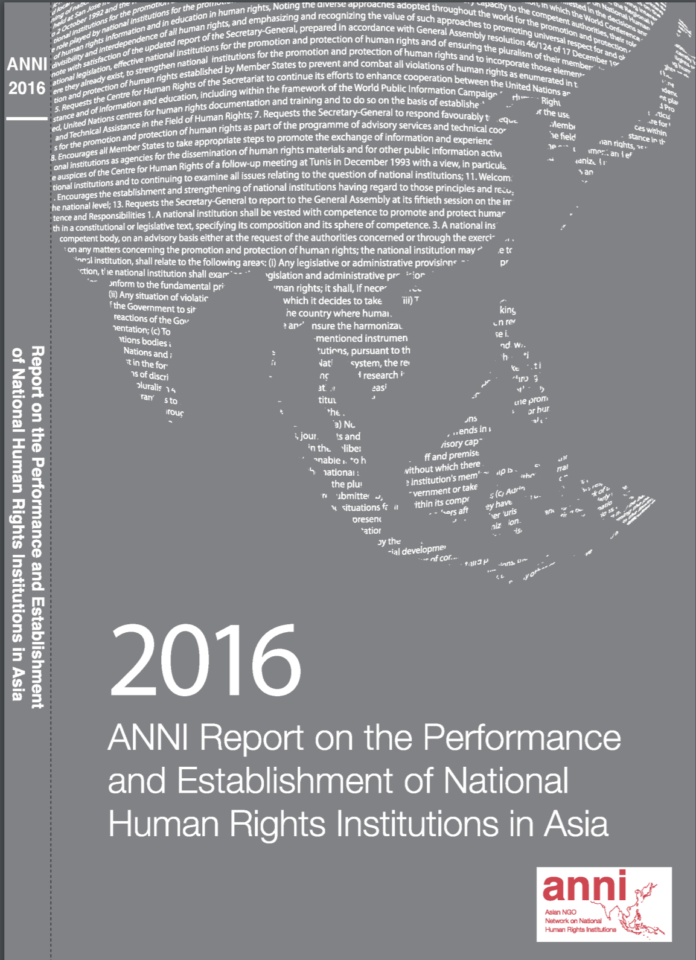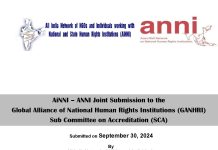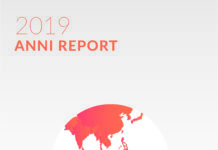2016 ANNI Report on the
Performance and Establishment of
National Human Rights Institutions
in Asia
In Asia where regional human rights system has not been developed as how it has in other regions, National Human Rights Institutions (NHRIs) hold and continue to play significant role in the promotion and protection of human rights. The United Nations (UN) addressed the importance of NHRIs since 1946 when the Economic and Social Council (ECOSOC) encouraged States to form local human rights committees to further the work of the UN Commission on Human Rights.
In 1991, the first International Workshop on National Institutions for the Promotion and Protection of Human Rights led to the drafting of Paris Principles. It was thereafter in 1993, during World Conference on Human Rights that for the first time NHRIs compliant with the Paris Principles were formally recognized as important and constructive actors in the promotion and protection of human rights. To date, 70 years after abovementioned ECOSOC’s Statement; although with key international recognitions on NHRIs’ role, NHRIs still face various challenges in undertaking their mandates.
During the last session of the United Nations Human Rights Council on 28 September 2016, a Resolution on NHRIs was adopted without a vote,2 reaffirming the importance of establishing and strengthening independent as well as pluralistic NHRIs in accordance with the Paris Principles. While Paris Principles has been widely recognized by the international community as the standard which frame and guide the work of NHRIs, significant efforts to push for NHRIs’ full compliance with the principles provided therein are still much needed in order to ensure effective promotion and protection of human rights.
The Global Alliance of NHRIs (GANHRI, formerly known as the International Coordinating Committee of NHRIs or ICC), through its Sub-Committee on Accreditation (SCA), has been playing key task in international level of not only providing guidance beyond the Paris Principles, but also reviewing performance of NHRIs. While GANHRI’s position in promoting and strengthening NHRIs in global level is significant, local civil society actors also continue to provide balance assessments as they closely work towards the same pursuit of greater
human rights protection in their own region.












